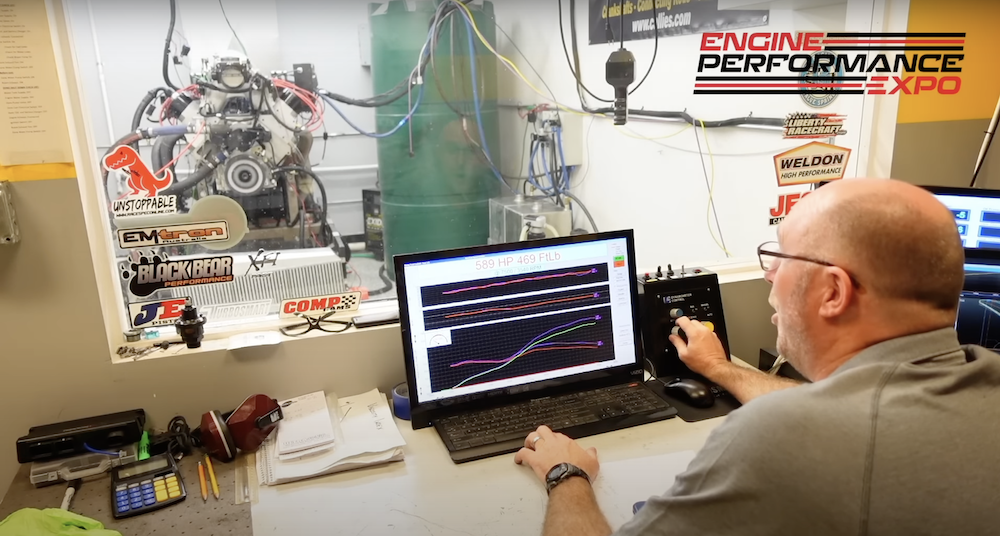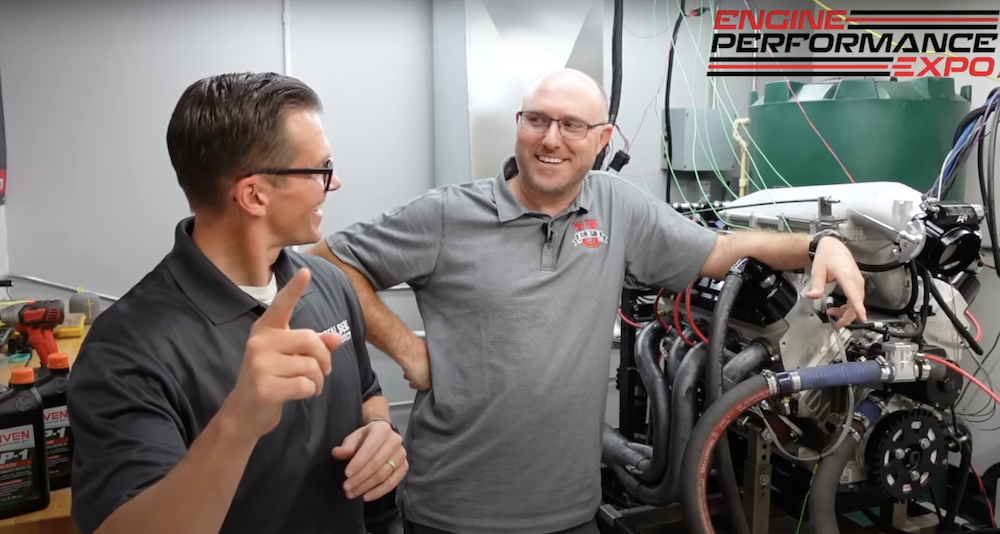LS Engine Gains Significant Power at Low Oil Levels
Running an LS engine at low oil levels could prove catastrophic, but on the flip side, it also leads to a notable power gain.
Engine oil is one of those things that most of us keep close tabs on, and for good reason – too little oil can lead to a complete and total disaster, not to mention a pricey one. However, one thing that many may not be aware of is the fact that the oil capacity of something like, say, an LS engine can have a pretty big impact on output. Recently Lake Speed Jr. behind The Motor Oil Geek YouTube channel demonstrated precisely how this works by paying a visit to Ben Strader at EFI University and analyzing the results of an LS engine on the dyno at various oil levels.
This particular powerplant generally utilizes 11 quarts of 15W-40, but for the first portion of this test, the duo only gives it five quarts to lubricate its insides. The oil they use is a synthetic blend from Driven Racing Oil called GP-1 High-Performance, and for simplification purposes, our engineering duo starts out at this lower level with plans to add more oil at two different intervals and see how the LS engine responds.
Thus, at the initial “dangerously low” oil level, this V8 churns out 649 horsepower on the dyno, giving us a baseline for this scientific test – though, notably, oil pressure drops to 36.1 psi at around 5,100 rpm, or around half of where it should be. For the next run, they add two quarts to bring the total up to seven, which results in a bit of a loss at 630 horsepower and an improvement in oil pressure to 68 psi, though at 7,000 rpm, power began to drop as there simply wasn’t any oil left in the wet sump.
Thus, for the final run, the team adds another two quarts to bring the total up to nine. This time around, oil pressure didn’t dip at all, though output came in at “just” 589 horsepower – a whopping 60 ponies less than the first result, or just over a nine percent decrease. Obviously, most aren’t wiling to run their engines at dangerously low oil levels and risk damage, but at the same time, less oil creates less resistance internally, which means more power – though figuring out the right levels for race day requires a bit of experimentation.


